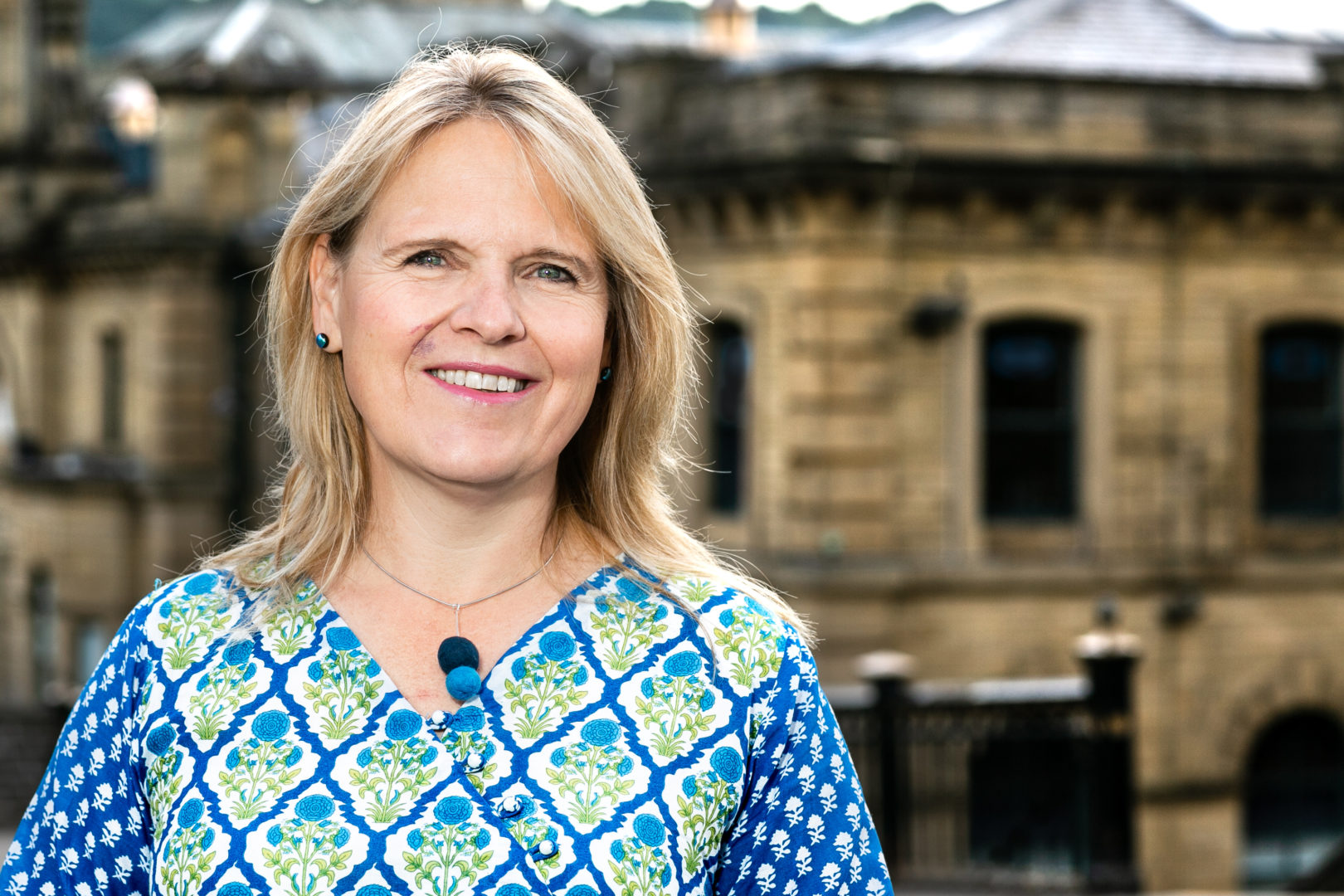The view from here – Kersten England, Bradford Council

In this series we ask key figures in the region and from our core sectors to share their insights.
This time we chatted to Kersten England, Chief Executive of Bradford Council and lead Chief Executive for innovation and growth in the Leeds City Region.
Kersten shared her assessment of our region’s outlook for business and what she sees as the key opportunities for the future.
What is the current outlook for business across the Leeds City Region in your view?
Before the pandemic, we were seeing strong levels of growth across Leeds City Region. We have some tremendous assets here: more universities than any other city region, a long industrial heritage and many successful businesses linked to innovation.
The pandemic has obviously had a devastating impact on sections of the local economy, primarily retail, hospitality and leisure, but it has accelerated pre-existing trends in those sectors, rather than being the root cause.
We have a disproportionate number of SMEs and manufacturing businesses here compared to the rest of the UK, which have also been impacted and it is turbulent times ahead for many supply chain businesses.
There are many business owners, however, particularly in medtech, who have played an essential role in responding to the current challenges – some mature and growing businesses and some new entrants. Our strength in biosciences, the health and care economy, cyber security and data analytics is seeing growth at every level.
Our food industry too – from giants such as Morrisons, to smaller, artisan producers – is thriving and we are the youngest city region in the UK with a wealth of skills and talent in the digital sphere.
What are the key challenges to innovation and growth?
Innovation – and how we can support businesses to embrace it – has been a passion of mine for the past decade and something I’ve driven, both in my local authority role and as a former trustee for innovation foundation NESTA.
We have the assets here, but we need to shift the dial further on productivity and innovation. There is a self-deprecation I see in many Yorkshire business owners, which does not speak either to internal or external audiences – and potential investors – of the tremendous opportunities there are to scale up and grow their business concept.
Anyone familiar with “China’s Absorptive State” (research undertaken by the Foreign and Commonwealth Office, Department for Business, Innovation and Skills and Research Councils UK) – will have read about China’s incredible record of moving fast to adopt innovation, secure the rights, then scale up and replicate.
We can learn from them and other countries in terms of developing a much stronger, commercial approach to R&D, productivity and IP patents – and in telling the world about our successes.
It is absolutely imperative that we work harder to achieve an inclusive and sustainable recovery. We need to do much more to increase diversity and inclusion in the sector. There have been strides forward, but it is still a journey and business owners and leaders must embrace the challenge to ensure that people of all backgrounds, gender, race and class are included in their teams.
What are the key opportunities for our region’s businesses?
I go back to the tremendous assets we have here, particularly in terms of the academic expertise from our regions’ universities. Knowledge transfer partnerships are critical to sharing that vital expertise and innovation hubs such as Nexus, 3M Buckley at Huddersfield and the Ellen MacArthur institute for the circular economy at the Bradford Management School, present a huge opportunity for collaboration between businesses and key academics in their sector.
The great value of academic experts and the wealth of R&D they bring with them, is that they are almost always interested in things beyond their particular specialism. They are keen to collaborate and discover new and better ways of doing things – it is what drives them – and business owners can tap into that.
We also have a young and vibrant demographic here – young people are digital natives and part of a global tech community: there is real hope for innovation and business growth from that community and our region can play a major part.
In terms of support for start-ups and entrepreneurs, what do you think needs to happen next?
We need to combine our R&D knowledge and insights, with our enterprise thinking and business acumen, to create an ecosystem of experts, mentors and specialist advisors.
Nexus is playing a key role in forming that ecosystem and I’m looking forward to working with them to ensure that the whole region benefits from their community of innovators and experts.
We also need to present ourselves more confidently and forcefully as a region which has an abundance of businesses ripe for investment and which can deliver growth on the national and international stage.
Our financial and professional services sector can play a key role here and we all need to ensure that innovation does not become an “elite sport”. There is often a special narrative reserved for innovation-led business, when straight forward language would do the job just as well – if not better.
The world of R&D needs to be much more accessible to start-ups, early stage and growing businesses – the landscape can often seem unintelligible and hard to navigate.
What can our region’s businesses most look forward to as we emerge from the current challenges?
I think there is a sense of community and collaboration in Leeds City Region, which has grown stronger through lockdown and the adaptations we’ve all had to make.
Local authorities, businesses, universities, banks – every part of the regional ecosystem – needs to see success not as a competition, but as a collaborative achievement from which we all benefit.
That process has started and there are a host of young entrepreneurs across our region who will benefit. The innovation pipeline is strong and we must encourage more private equity up North to invest in it, by presenting a wide and flexible range of funding options, blending both private and public sector finance.
We must invest in our incredible young people cross Leeds City Region – they are the innovators of the future and the key to our globally-connected economy. We cannot underestimate the underlying headwinds, but we can leverage our many assets to present a compelling business case.
Explore more insights from our ‘the view from here’ series:
Latest news

The view from here – Richard Stubbs, CEO of the Yorkshire & Humber AHSN
We speak to Richard from the Yorkshire & Humber Academic Health Science Network about the new traction for innovation across the NHS, his passion for driving diversity in healthcare and his mission for our region to be the UK’s epicentre for life sciences.
Read article
The view from here – Beckie Hart, Regional Director, CBI
Beckie Hart shares her thoughts on how our region’s businesses are coping during the COVID-19 pandemic, information on the support available and what she thinks are the key learnings for the future.
Read article
The view from here – Jonathan Jones, Squire Patton Boggs, European Managing Partner
We catch up with Jonathan over a virtual coffee, as he shares his predictions for Leeds as it emerges from the COVID-19 crisis and the role that innovation hubs have to play in economic recovery.
Read article
The view from here – Jem Henderson, Tech Nation
We catch up with Jem Henderson, Yorkshire Entrepreneur Engagement Manager with Tech Nation, over a virtual coffee to chat about what's happening at Tech Nation and what she sees as the main opportunities for tech businesses across our region.
Read article